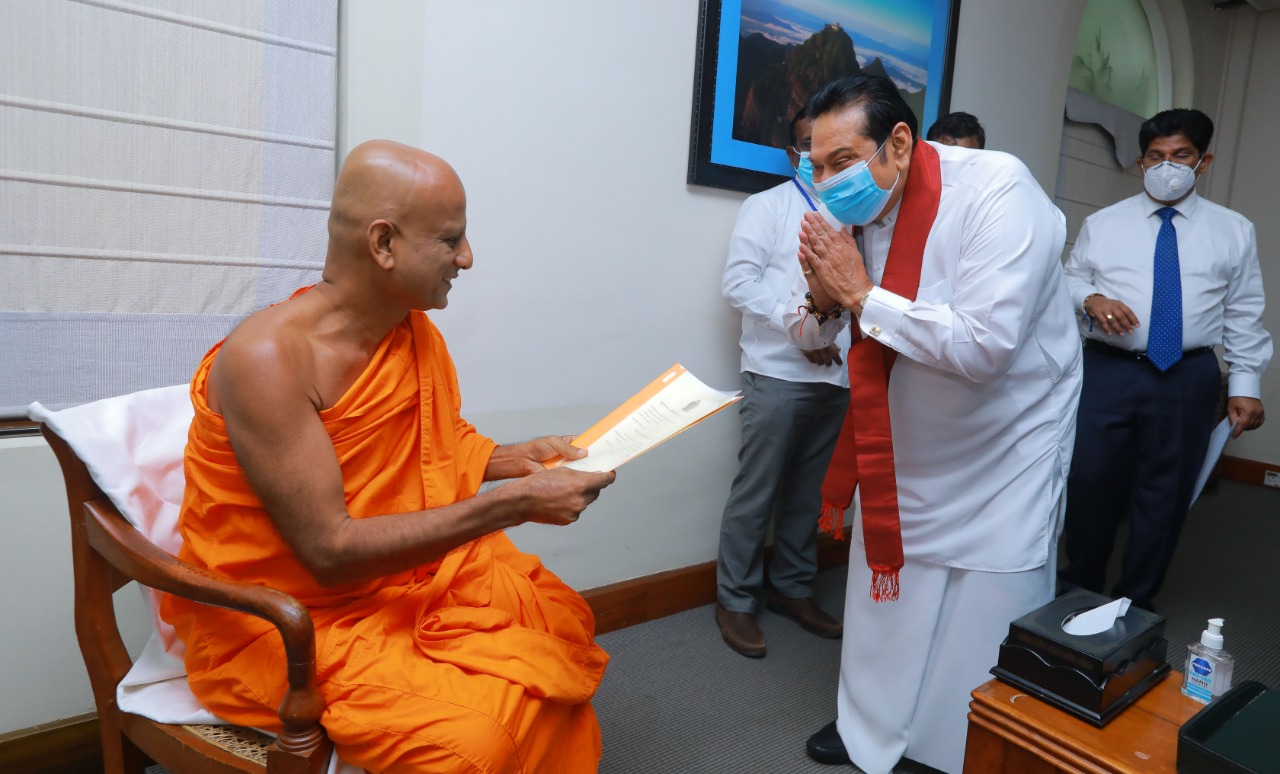
Mahinda Rajapaksa with a Sinhala Buddhist monk photographed earlier this year.
The Sri Lankan cabinet has approved amendments to five bills drafted on the banning of cattle slaughter this week, in a move that pushes the island on the verge of a ban following years of pressure from Sinhala Buddhist monks.
The approval of the amendments will mean that they will now be tabled in parliament and follows action from Sri Lankan prime minister Mahinda Rajapaksa last year to outlaw the practice.
Rajapaksa, who also remains the Minister of Buddhasasana, Religious, and Cultural Affairs, claimed that the “proposal that exists since the time of nationalist leader Anagarika Dharmapala” – a controversial leader of the Sinhala Buddhist nationalist revival movement who was openly hostile and racist towards other religions.
Previous Sri Lankan ministers have echoed Rajapaksa’s comments, with Sinhala Buddhist monks in particular leading the call.
In 2013 for example, a group of monks raided and shut down an “illegal” Muslim slaughterhouse, which had been operating in Wattala for the past 12 years.
The JHU, a party made of extremist Sinhala Buddhist monks, has lobbied for the ban on cattle slaughter and animal sacrifices carried out by some Tamil Hindu temples for years, claiming that "the Buddhist belief is that by killing an animal you are killing what could be your mother, daughter, grandfather and so on, so it is not a good practice to continue”.
The spokesman of the JHU, Nishantha Sri Warnasingha told Xinhua in 2012 that Sri Lanka was a "Sinhala Buddhist country" and as such had a right to protect animals, as Buddhist teachings decree.
“We need to protect the animals so we will push for the ban. So many countries have tight laws to protect animal rights. Our laws must be strengthened,” Warnasinghe said.
There are fears the move will particularly impact on Muslims across the island, as well as other communities such as Christians and Hindus from oppressed castes who eat beef.

